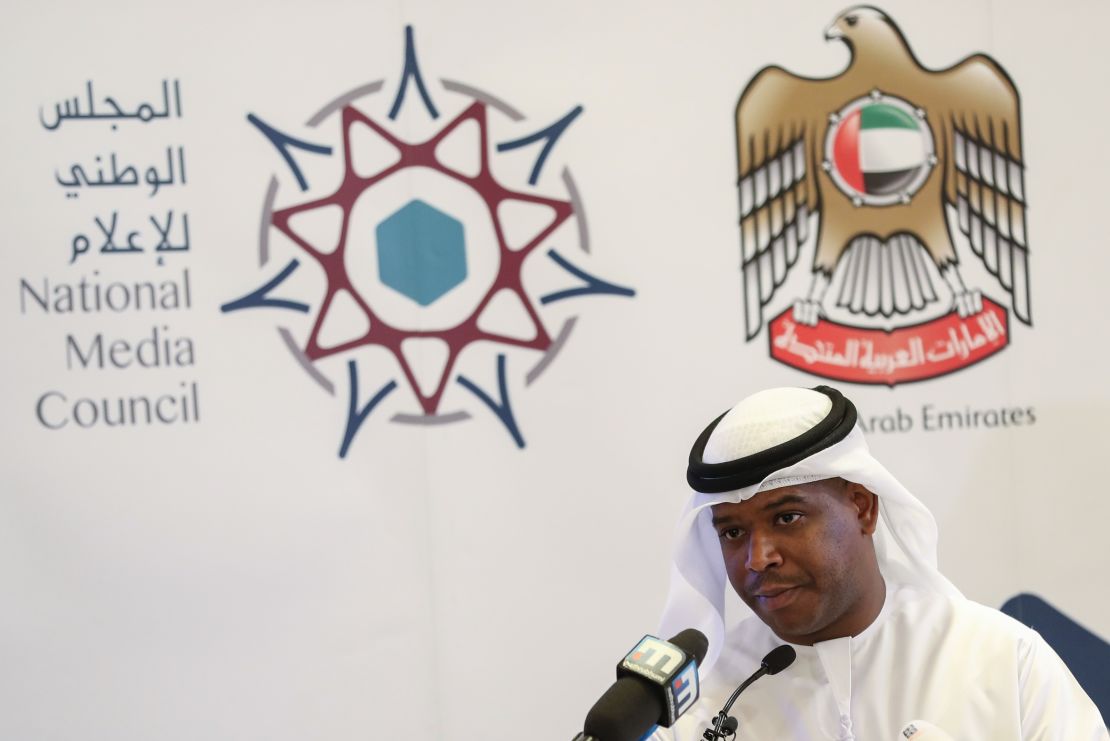Matthew Hedges, the British academic who was sentenced to life in prison for spying in the United Arab Emirates, says his forced confession came amid threats he’d be imprisoned in an overseas military base and tortured.
Hedges, 31, received an official pardon from the UAE on November 26 and returned to the UK the following day. He had been incarcerated for six months following allegations he was working for the British security services.
But speaking to CNN’s Max Foster on the Hala Gorani Tonight show Wednesday, Hedges says his confession was in response to what he felt was an immediate threat to his safety.
“I wasn’t physically tortured but I was intimidated and threatened with acts of physical violence,” Hedges said.
“They had on one occasion threatened to illegally rendition me to an overseas military base where they would beat and torture me.
“They started off asking if I was a member the foreign office, then it went to are you a member of the MI6 and then they started going down this line…. they started asking me what rank I was, captain, major?
“In a moment of panic I was like, ‘Yeah, yeah, sure, I’m captain,’ just to try to appease them.”

Jaber al-Lamki, the executive director of the UAE National Media Council, stood by his country’s insistence that Hedges was a spy.
“A spy is a spy… 100% full secret service operative,” he said. “He has been given a pardon, but that doesn’t wipe out case of being a spy, that’s something he has to live for the rest of his life.”
Al-Lamki defended the country’s legal procedures, insisting: “We treat all prisoners with fairness in accordance with UAE laws.”
He added that Hedges had a lawyer provided by the government because Hedges said through a translator that he could not afford one.
Hedges, a specialist in Middle Eastern studies at the University of Durham, was arrested on May 5 at Dubai airport, following a research trip.
Already paranoid that he was being followed and that his phone and emails were being bugged, Hedges says he was picked up at the airport by security services as he attempted to check in for his flight.
Hedges says at no point was he provided with a lawyer until his case came to court.
He says he was found guilty after a five-minute hearing. He also says he was forced to sign a confession in Arabic, a language Hedges does not read nor speak.
Despite receiving a presidential pardon, the UAE has continued to allege that Hedges was a spy recruited by British intelligence. At a press conference last month, UAE authorities showed journalists a video which purportedly showed Hedges’ confession.
The UK authorities have repeatedly denied the claims.
“By most international standards, the idea of due process was never adhered to and that was very apparent when I wasn’t allowed a lawyer,” Hedges said.
“I was held in solitary confinement for six months. These are the types of issues we are going to raise because this isn’t the fair and right way to conduct justice.
“I wish it hadn’t happened both for myself and my family but also for the UAE because I think they need to have a look and see what they stand for.
“This process has shed some negative light on their laws and I think it’s something they will have to look into.”
Both Hedges and Tejada, his wife, want life to return to some semblance of normality following an arduous year in which their worlds have been turned upside down.
Tejada, who led the media campaign in the UK, also wants to make sure her husband’s name is cleared of any wrongdoing, with the pair taking legal advice on how to proceed.
“You can’t erase the mistreatment and all the traumas that these past seven months of struggle have had on Matt, myself and our families,” she said.
“Matt will certainly take a long time to recover from the traumas and the medication he was given and the general mistreatment.
“But there’s also the fact he was given a pardon but never actually declared innocent, which he is.”
Warda Aljawahiry in London contributed to this report.






